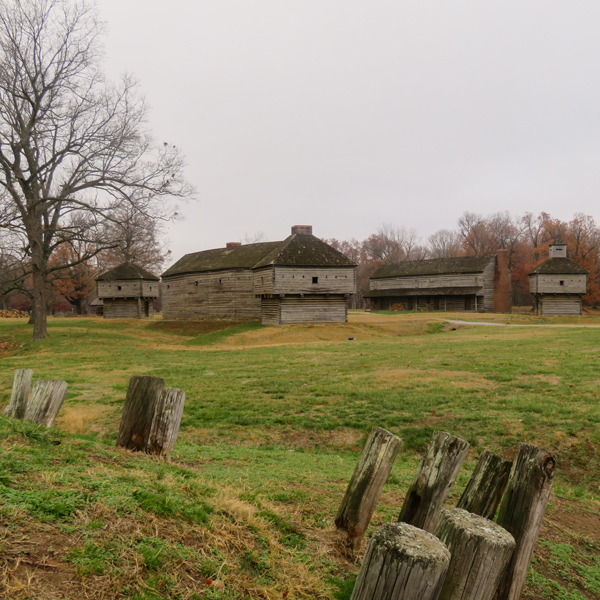Repentant Mutineer
Newman was a good hunter and “a man of uncommon activity and bodily strength”[1]Donald Jackson, ed., Letters of the Lewis and Clark Expedition with Related Documents, 1783-1854; 2nd ed.; 2 vols. (Chicago: University of Illinois Press, 1978), 1:364. who said something unforgivable, and under the rules of the Articles of War was expelled from the Army.
A Pennsylvanian, he had transferred from Fort Massac into the expedition in the fall of 1803, and was a good member of the expedition until October 1804. He may have responded to deserter Moses Reed‘s malevolent influence, because on 12 October 1804, both men were confined. Newman’s trial took place the following day, and he was convicted of “having uttered repeated expressions of a highly criminal and mutinous nature; the same having a tendency not only to distroy every principle of military discipline, but also to alienate the affections of the individuals composing this Detachment to their officers, and disaffect them to the service for which they have been so sacredly and solemnly engaged.”[2]Moulton, ed., Journals, 3:170.
Despite Newman’s not-guilty plea, the panel of two sergeants and eight privates convicted their peer.[3]The panel: John Ordway, Patrick Gass, John Shields, Hugh Hall, John Collins, William Werner, William Bratton, George Shannon, Peter Weiser, and Silas Goodrich. When Newman’s lashing was given on 14 October, an Arikara chief temporarily traveling with the Corps was present. He begged for mercy to Newman, but listened to the captains’ explanation of why such punishment was the army custom. The chief replied that “examples were necessary & that he himself had made them by Death, but his nation never whiped . . .”[4]Moulton, 3:172.
This exchange—”examples were necessary”—helps explain both the harshness and Lewis’s later support of Newman. The captains were making an example of Newman lest the expedition begin to unravel while still in its first year. Reed had deserted in August and now, two months later, they would not tolerate even mutinous talk.
Like Reed, Newman spent the winter in Fort Mandan’s relative safety and returned to St. Louis on the barge (called the ‘boat’ or ‘barge’ but never the ‘keelboat’) in spring 1805. Over that winter, Lewis later wrote, Newman’s constant attempts to atone “induced him to expose himself too much to the intense cold of that climate,”[5]Jackson, 1:365. suffering frostbite that took weeks to heal.
Lewis turned down Newman’s plea to stay on, “deeming it impolitic to relax from the sentence, altho’ he stood acquitted in my mind . . . .”[6]Ibid. Even so, on the barge away from the captains, Newman continued “his personal exertions” to hunt and to guarantee the boat’s safety all the way to St. Louis. And so Lewis, when he transmitted the pay roll to Secretary of War Henry Dearborn in January 1807, requested that Newman receive pay through the date of his expulsion. (Lewis proposed taking it from the share of Jean-Baptiste Lepage, Newman’s replacement. Newman did receive partial pay, and a land warrant, and may have settled in Missouri. But he too heeded the lure of the Upper Missouri and trapped in the North and South Dakota during the 1830s. In 1838 he was killed by the Yankton Sioux, who had been friendly towards the Corps.[7]Moulton, 2:519.
Notes
| ↑1 | Donald Jackson, ed., Letters of the Lewis and Clark Expedition with Related Documents, 1783-1854; 2nd ed.; 2 vols. (Chicago: University of Illinois Press, 1978), 1:364. |
|---|---|
| ↑2 | Moulton, ed., Journals, 3:170. |
| ↑3 | The panel: John Ordway, Patrick Gass, John Shields, Hugh Hall, John Collins, William Werner, William Bratton, George Shannon, Peter Weiser, and Silas Goodrich. |
| ↑4 | Moulton, 3:172. |
| ↑5 | Jackson, 1:365. |
| ↑6 | Ibid. |
| ↑7 | Moulton, 2:519. |

